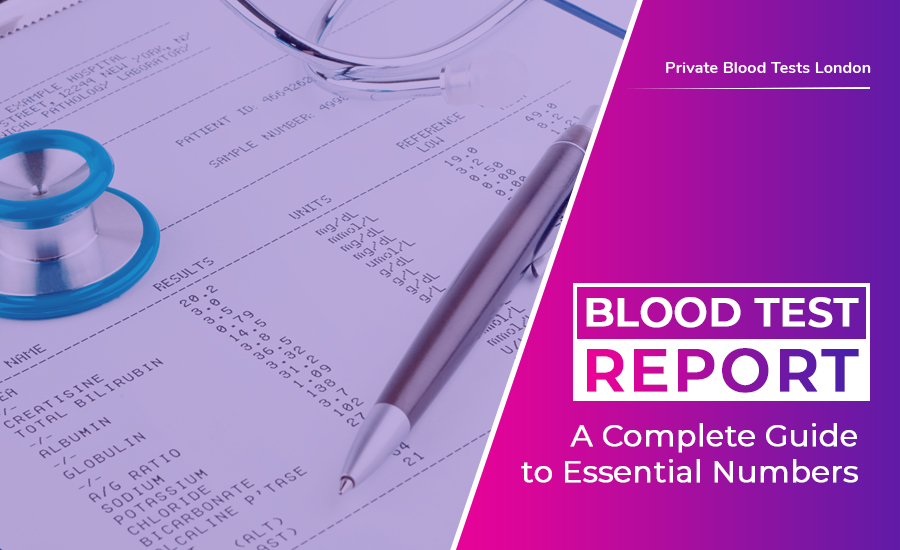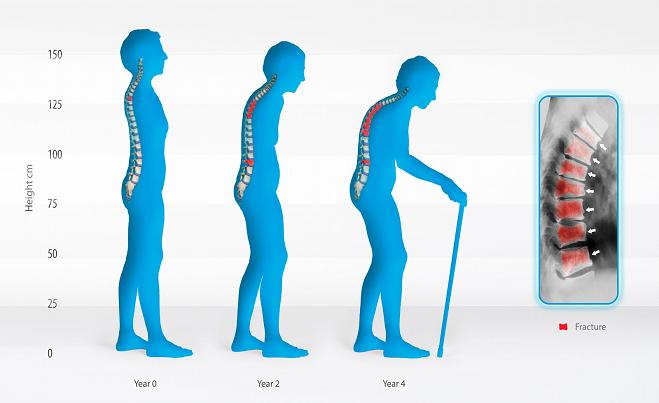Blood test is the fundament assessment to evaluate the overall health condition of an individual. Usually, it is hard to understand a blood test report on your own due to the use of rare acronyms and abbreviations. Also known as blood panels, blood test is the basic tool of the physicians for proper diagnosing of the overall health condition of the patients.
Diagnosing can be only done properly in the basis of the blood test reports. With the help of the private blood tests, doctors go through a detailed analysis of the waste products, the nutrients and disease markers in the blood. Accordingly, the exact cause of the declination of the health is determined so that right treatment can be started on time.
At the time of full physical examination, blood test is suggested for checking the level of essential components in the body. If you want to be able to read and understand the blood test report, go through the blog once to know the right abbreviations and some common tests.
Deciphering Blood Test Measurements
Blood tests are measured by using several abbreviations and metric measurement system. These are given below for your reference:
- pg (picograms)- one-trillionth of a gram
- cmm- cells per cubic millimetre
- ng/mL- nanograms per millilitre
- fL (femtolitre)- fraction of one-millionth of a litre
- mmol/L- millimoles per litre
- g/dL- grams per decilitre
- mL- millilitre
- IU/L- international units per litre
- mg/dL- milligrams per decilitre
- mEq/L- milliequivalent per litre
Chemistry or Metabolic Panel
ALT (Alanine Aminotransferase)
Normal range- 8-37 IU/L
This exam is done to check the liver enzyme ALT. It will give an average score if there is nothing wrong with the liver. Otherwise, there must be some serious concern which can lead to liver damage in the future.
Albumin
Normal range- 3.9-5.0 g/dL
It is the protein secreted by liver. With the help of its level any kidney or liver issue can be determined easily.
A/G ratio (Albumin/Globulin Ratio) or Total Protein Test
Normal ratio- slightly above 1 (favouring albumin)
2 kinds of protein are there in the blood- globulin and albumin. The A/G ratio is reliable for determining each of its levels. Elevation is the clear indication that the person needs immediate medical attention.
Alkaline Phosphatise
Normal range- 44-147 IU/L
It is an enzyme private blood test related to bone and liver. Its elevation will lead to problems with bone health and liver function.
AST (Aspartate Aminotransferase)
Normal Range- 10-34 IU/L
It is the common enzyme available in liver and heart tissue thereby elevation can emerge numerous issues to those and other surrounding areas.
Bilirubin
Normal range- 0.1-1.9 mg/dL
It gives information associated with the kidney and liver function, bile ducts’ problem and anaemia.
BUN (Blood Urea Nitrogen)
Normal range- 10-20 mg/dL
It helps in examining the liver and kidney functions. Higher values are the clear indication of kidney problem. Diet loaded with protein and several medication can increase the level of BUN too.
BUN/Creatinine Ratio
Normal ratio of BUN to Creatinine- 10.1:20.1 (elderly individuals and men possess a slight higher)
This test displays whether excretion is properly done by the kidneys or not. High creatinine level (by-product of muscle contractions) excretes via the kidneys which results in reduction of its performing ability.
Calcium
Normal range- 9.0-10.5 mg/dL (Elderly individuals can score little lower)
Excess calcium in the main blood stream can be the prime cause of kidney issues. It can also lead to certain forms of cancer, pancreas problem, deficiency of vitamin D and parathyroid glands.
Chloride
Normal range- 98-106 mEq/L
It is also considered as an important part of the electrolyte panel. Chloride elevations occur due to certain medications and high-salt diet. Excessive chlorination can make the bodily environment over acidic. It is the red flag for certain medical complexities such as adrenal gland dysfunction, kidney disorders, multiple myeloma and dehydration.
Creatinine
Normal range- 0.5-1.1 mg/dL in women, 0.6-1.2 mg/dL in men (in aged people it can slightly vary)
It helps in the proper functioning of the kidneys to excrete waste. Hence, any kind of elevation can interfere with its functional ability.
Fasting Glucose (Blood Sugar)
Normal range-70-99 mg/dL for the adult (it can be even higher if their health are too good)
Level of blood sugar gets affected greatly by the beverages and food ingested currently. Even medication and recent stress level can also affect its level. Fasting glucose level test is performed after 6 hours of fasting (without drink or food) except water.
Phosphorus
Normal range- 2.4-4.1 mg/dL
Phosphorous has an integral role to play in the maintaining the health of the bone along with calcium levels. Excessive phosphorous can raise the parathyroid gland or kidney issue. On the other hand, malnutrition, extreme intake of vitamin D or diuretics, long-term use of antacid and alcohol abuse can elevate its level as well.
Potassium
Normal range- 3.7-5.2 mEq/L
This mineral is reliable for nerve impulses and maintaining proper functional ability of the muscles. It acts greatly for regulating heartbeats as well. Certain High Blood Pressure medications such as drugs and diuretics can result in the low potassium levels.
Sodium
Normal range- 135-145 mEq/L
It is an essential component of the electrolyte family. This mineral sodium is helpful in balancing the water level in the body along with muscle contractions and nerve impulses. Imbalance of sodium level can be represented by dehydration, adrenal glands disorder, high salt intake, pain-relieving medications (corticosteroids) and kidney or liver problems.
Lipid Profile or Lipid Panel
Lipid profile test is the entire collection of examinations for taking the measurement of the triglycerides (fats) and cholesterol in the bloodstream.
Total Cholesterol
- Healthy- Below 200 mg/dL (below 5.18 mmol/L)
- Borderline high- 200-239 mg/dL (5.2 to 6.2 mmol/L)
- High- Above 240 mg/dL (above 6.2 mmol/L)
This blood test can be performed at a private clinic for checking the combination of both good (HDL) and bad (LDL) cholesterol. Mainly it helps in checking whether the nutrients are properly working or not and reviewing the cholesterol levels.
Triglycerides
Normal range- 40-160mg/dL
The fats in the bloodstream can contribute to the emergence of health complications and heart diseases.
HDL (Good) Cholesterol
- Best-Above 60 mg/dL
- Good-50 to 60 mg/dL
- Poor-Lower 40 mg/dL in men; Lower 50 mg/dL in women
Being good cholesterol, high-density lipoprotein (HDL) is helpful for protecting the heart disease. Its low measurement is the risk factor for several heart diseases.
LDL (Bad) Cholesterol
- Optimal- Below 100 mg/dL
- Near optimal- 100 -129 mg/dL
- Borderline high- 130-159 mg/dL
- High- 160-189 mg/dL
- Very high- Above 189 mg/dL
Being bad cholesterol, low-density lipoprotein (LDL) is the component which clogs the arteries and contributes in emerging heart disease.
Total Cholesterol/HDL Ratio
- Optimal- Ratio of 3.5:1
- Healthy- Ratio of 5:1 or below
Ratio is determined for examining your susceptibility for heart disease. It is done so by distinguishing the HDL level from total cholesterol count.
CBC (Complete Blood Count)
CBC exam is helpful in checking the cellular elements on the blood along RBC (Red Blood Cells), platelets and WBC (White Blood Cells). This section mentions the detailed test procedures which are involved in the CBC along their normal range. Always review the report by the doctor instead panicking as lab test results vary a bit.
WBC (white blood cell) Leukocyte Count
Normal range- 4,300-10,800 cmm
WBCs are effective in fighting infections and thus its count is necessary for detecting any infections. It can be leukaemia and other medical conditions. Certain WBCs get produced by certain health disorders or medications.
WBC (White Blood Cell) Differential Count
Normal range-
- Neutrophils- 40%-60% of the total
- Lymphocytes- 20%- 40%
- Monocytes- 2%-8%
- Eosinophils- 1%-4%
- Basophils- 0.5%-1%
This test is done in checking the sizes, shapes and numbers of various WBCs. Its different count depicts the proportions of varied cells amongst each other. In case any irregularity is identified it can lead to anaemia, autoimmune disorders, inflammation, infections and other medical issues.
RBC (red blood cell) Erythrocyte Count
Normal range- 4.2-5.9 million cmm
There are millions of RBCs in the body and by this test the approximate numbers of it can be determined in particular blood amount. Accordingly, their lifespan can be determined. If there is any abnormality other tests should be done as it can’t detect the origination of the problem.
Haematocrit (Hct)
Normal range- 45%-52% in men; 37%-48% in women
It is useful in diagnosing anaemia by evaluating the comprising of RBCs in the total blood volume of the body.
Haemoglobin (Hgb)
Normal range- 13-18 g/dL in men; 12-16 g/dL in women
RBCs are comprised of haemoglobin due to which blood looks bright red. Furthermore, it helps in delivering oxygen to whole body from lungs and returns with carbon dioxide for exhalation. Its low level is the potential sign of anaemia.
Mean Corpuscular Volume (MCV)
Normal range- 80-100 femtolitres
It helps in measuring the approx RBCs volume and the space each consumes. Abnormality is the indication of chronic fatigue syndrome and anaemia.
Mean Corpuscular Haemoglobin (MCH)
Normal range- 27-32 picograms
It is reliable for measuring the average haemoglobin amount in the RBC. Irregular report can signal for anaemia and nutritional deficiency as well.
Mean Corpuscular Haemoglobin Concentration (MCHC)
Normal range- 28%-36%
The test report of MCHC is important for checking the haemoglobin average concentration in the RBCs. In case the count is quite low then you should check for the anaemia and its indications along with nutritional deficiencies.
Red Cell Distribution Width (RDW or RCDW)
Normal range- 11%-15%
With the help of this test, an idea can be drawn regarding the size and shape of RBCs. A certain number of health conditions such as nutritional deficiencies, anaemia and liver disease result in low or high RDW result.
Platelet Count
Normal range- 150,000-400,000 mL
Platelets are vital components playing a responsible role in blood clotting during bruise, cuts, wounds and injury. Being necessary, clotting gets affected if there is any imbalance in its level. It may arise some medical complexities too.
Mean Platelet Volume (MPV)
Normal range- 7.5-11.5 femtolitres
This test is done for measuring and calculating the mean sizes of platelets. High MPV indicates larger platelets and it can increase the risk of stroke or heart attack. Low MPV is referred to the smaller platelets which prone the person for bleeding disorder.
Additional Suggested Tests
Thyroid
Though it is not the part of normal blood panel yet it is suggested to the patients if they experience sudden weight gain, weight loss, hyperactivity, nervousness and fatigue. It is helpful in detecting the abnormality in the thyroid gland.
Normal range:
- Thyroid-stimulating hormone (TSH)- 0.3-3
- Total T4 (total thyroxine)- 4.5-12.5
- Free T4 (free thyroxine)- 0.7-2.0
- Total T3 (total triiodothyronine)- 80-220
- Free T3 (free triiodothyronine)- 2.3-4.2
If the report is lower than the given bars then it is a clear indication of hypothyroidism (low thyroid). In case it is above the normal range then it represents the hyperthyroidism (overly active thyroid). You should need immediate medical attention to keep the level in control.
Vitamin D
Normal range- 30-74 ng/mL
As deficit level of vitamin D is too common several people opt for the vitamin D supplement. Lower level of this vitamin can increase the risk of cancer, heart disease, bone injury and series of other illnesses. Bare skin is reliable for trapping the natural vitamin D from the sun.
For this you are not supposed to apply sun lotions and sun block. Sometimes, aged people and complexion are not sufficient for trapping so for improving the optimal health. So, you are advised to undergo vitamin D test for taking any essential supplement.
Your doctors will analyse the result to you too. Vitamin D can be tested with a number of tests yet doctor will recommend the most suitable one for you. Sometimes fasting is required for a few hours by refraining from beverages and foods except plain drinking water.
Remember to follow the instructions strictly by the doctor otherwise; the report can be skewed along with further tests and proper treatment. If you doctor unable to spare time to provide the information, you can seek help from the physician’s assistant or nurse.
By knowing the above crucial parameters, you will be able to stay proactive and healthy in the long haul. Even, it will increase the quality of the life at the same time. To undergo this exam, you have to make an appointment for the blood tests in a London private clinic.
Make sure that after delivering of the report, it has been reviewed by the doctor so that, right treatment can be started on time according to the report.




